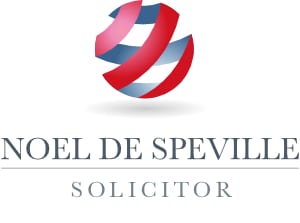French Commercial Leases
Commercial leases in France are governed by the law of 30th of September 1953 décret No 53-960. The principle governing commercial leases in France is designed to give the lessee a considerable degree of security of tenure, so that if, for instance, the lessee successfully builds up a business, they do not have to worry unduly about being evicted.
In essence, a commercial lease in France must be for a period of nine years and over, and the lessee has an automatic right of renewal after the nine-year period. If this does not occur, the lessor will have to provide compensation to the lessee for failure to allow renewal of the lease by the lessee.
The amount of the compensation is fixed by the Court and is therefore difficult to quantify precisely. However, the Appeal Court in Bordeaux has recently indicated that it would be looking to award an amount in the region of one to three years’ worth of net loss to the lessee.
French Leaseback Arrangements
The leaseback concept originates from the French Government’s desire to provide tax incentives for private investors to finance the building of good quality property in prime locations suitable for rental to tourists.
In order to try and create more wealth and more jobs, the French Government designates certain areas as being suitable for para-hotellerie (resort) activities. Thus planning permission for new constructions will be given on the basis that a certain percentage of these constructions will be managed specifically for short-term letting to tourists, both foreign and domestic.
For you to obtain a refund of the French VAT on the purchase price, you must enter into a commercial lease with a tenant – a management company dealing specifically with tourist lettings.
Although you will be able obtain a refund of the French VAT on the purchase price of your property, the rental income received by you under the lease will be subject to French VAT on lettings, which is currently 5.5%.
In the case of a qualifying leaseback, you will not be able to opt for exemption from French VAT on rental income,which is an option generally available if your rental income is less than about 76,000 euros per annum.
This is because the French Government eventually recovers the VAT which they refunded on the purchase from the long-term rental which you receive under the lease and also on the rental charge by the management company to the sub-tenant being the tourist.
Leaseback arrangements can be suitable for certain types of people, but are definitely not suitable for everyone.
With leaseback arrangements, the devil is in the detail of the reservation contract and the commercial lease (_bail commercial_). Professional advice is strongly recommended.
Types of French Companies
The types of French trading entities which you are likely to come across are:
SCI – Société Civile Immobilièe
This is a transparent civil real estate holding company. It is sometimes used by English resident purchasers of French property to circumvent the compulsory French airship rules. The use of the SCI as a purchase vehicle has fallen out of favour over the last five years because the British tax authorities were intimating that the directors of such companies might be responsible for tax on the value of the property as a benefit in kind. However, an announcement made within the latest budget in March 2007 indicated that the English authorities would no longer take this view, provided certain conditions were met.
SCIs can be a useful vehicle for several people purchasing together who may be unrelated, business partners, or to circumvent French inheritance rules. This will of course only achieve the desired result for people who are resident in the UK. The disadvantage is the expense of setting up the SCI and the annual administrative costs incurred to comply with French fiscal requirements.
SARL – Société A Responsabilité Limitée
This is similar to a UK limited company in concept. It is suitable for a relatively small number of participants who know each other reasonably well. This type of company is represented by a managing director (_gerant_) who can bind the other participants within the company. The participants are not responsible for any losses over and above the capital contributed.
Entreprise Individuelle:
This is the French equivalent of a sole trader.
EURL – Entreprise Résponsabilité Limitée:
This is similar to a SARL, save that there is a sole director and shareholder. The advantage is that of limited liability. The disadvantage is the increased formalities involved in the running of such a company.
SNC – Société en Nom Collectif:
This is similar to a partnership in concept in that each participant has unlimited liability for themselves and each other. There must be a minimum of two people, but there are no minimum capital requirements.
SA – Société Anonyme:
This is suitable for larger enterprises, because the minimum capital requirement is high. There must be a minimum of seven participants.
SAS – Société par Actions Simplifiee:
High capital is required for this arrangement, which has greater flexibility than the SA.


